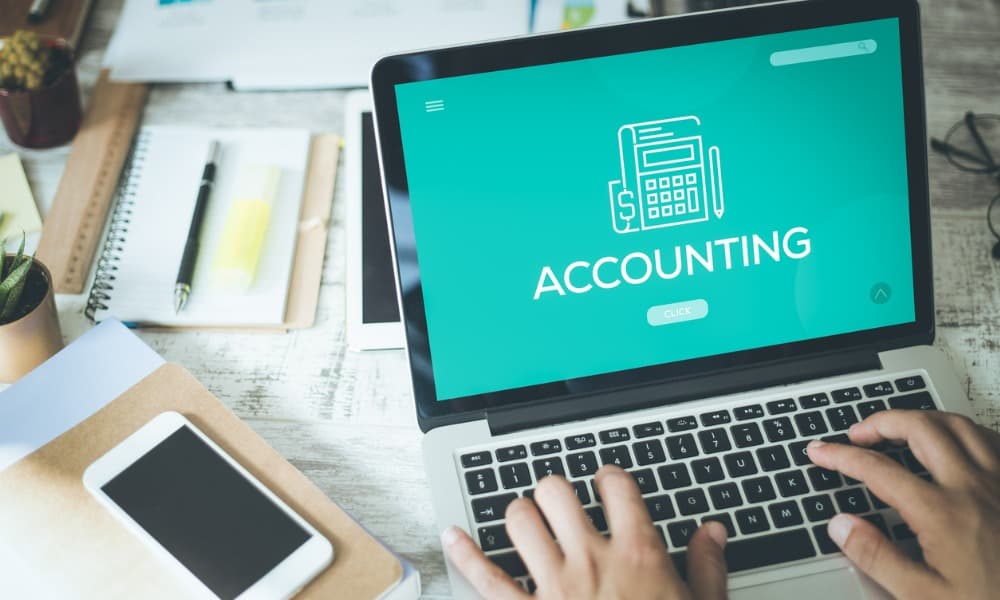Get an explanation of basic terms like accrual accounting, cash accounting, and double entry bookkeeping.
Key takeaways:
- Proper accounting is essential for any property management company (PMC) to remain competitive in such a huge and dynamic market.
- The right property management software program can automate most PMC accounting tasks.
- Enumerate Central offers a variety of features that make all aspects of accounting easier.
Thorough accounting is essential for any property management company (PMC) to remain competitive in such a large, dynamic market.
Property management accounting involves tracking, using, and recording services. Accounting is usually required to account for:
- Paying property maintenance vendors
- Receiving and documenting HOA payments
- Managing operating and reserve funds
- And more
When done right, property management accounting helps you see and manage how much profit or loss each property is making. It lets you accurately manage expenses so that you can minimize costs and maximize profits.
Most property managers aren’t also accountants, though, and therefore it’s very easy to make mistakes that can harm the company and residents.
Accounting is a huge part of owning a PMC, however, so it’s helpful to know some basic accounting terms. They include:
1. Accrual accounting
Accrual accounting records transactions when they are due instead of when the actual transaction happens. For example, one of your plumbers does a job in May, so you record the expense in May, and not June when the check is cut.
2. Cash accounting
Cash accounting is the opposite of accrual accounting. With cash accounting, you record transactions when they happen and expenses are recorded when they are actually paid. Accounts receivable and accounts payable offset accounts are not necessary when preparing financial reports with cash accounting.
3. Bookkeeping and books
The term “bookkeeping” comes from a time when accounting software wasn’t invented yet and it involved using actual books to record transactions. It’s now understood today that when the term is used, it’s part of software which a business uses to record all financial transactions into the books of accounts on a daily basis. It also refers to the different recording techniques used by businesses.
As a bookkeeper, you are required to:
- Record daily financial transactions
- Post debits and credits
- Maintain and balance current accounts and historical accounts
- Balance general ledgers
Account books are journals and ledgers where transactions are documented. The main types of account books include general journals, general ledgers, cash receipt journals, cash disbursement journals, sales journals, and purchase journals.
4. General journal
A general journal is a chronological record of all the financial transactions of a business. A general journal consists of columns that show the transaction’s date, short description, debit amount, credit amount, and transaction reference number. A general journal is useful for accounts reconciliation and helps produce financial statements.
5. General ledger
A general ledger is a “master accounting document” that is just like a general journal but it shows transactions broken down by accounts. The record shows changes in asset and liability accounts, revenues, equity, and expenses.
A general ledger is an essential accounting tool and comes in handy when generating a community’s financial reports, which are important for evaluating its financial health.
6. Chart of accounts
A chart of accounts (COA) is a listing of all the accounts in the company’s general ledger. The COA organizes business transactions into groups for the easy tracking of money coming in and out of your business.
Typically, the COA lists financial accounts in the following order.
- The balance sheet:
a) Asset accounts
b) Asset accounts
c) Equity accounts - The income statement:
a) Operating revenue accounts
b) Operating expenses account
c) Non-operating revenue accounts
d) Non-operating expenses accounts
As the general rule of accounting states, “Revenues increase your company’s equity and asset accounts, while expenses decrease your assets and equity.”
7. Debits and credits
When accounting for business, you have to record the transactions in two accounts (double entry), debit and credit accounts.
In the simplest terms, debits are a record of all the finances flowing into your business, while credits are a record of all the finances flowing out of your business account. Debits and credits are opposite and equal. They occur simultaneously and denote a transfer of value.
8. Double-entry bookkeeping
Double-entry bookkeeping is an accounting method of recording business transactions. This method requires that every business transaction be recorded in at least two equal and opposite accounts (as debit or credit). The debits and credits must always balance for error-free financial reports.
Why automation makes accounting so much easier
In the past, companies had to use manual, paper-based books to record all business transactions. This method requires in-depth knowledge of accounting. When it comes to accounts reconciling, manual accounting can be very draining and prone to errors.
Fortunately for PMCs, the draining tasks are becoming a thing of the past. We now have property management software that can automate most or all of the accounting tasks required. These applications streamline day-to-day business operations, allowing time to focus on other essential activities for business growth.
Why you need property management software
Are you still using paper ledgers or excel spreadsheets? It’s time to simplify everything. Here are a few reasons why every PMC should use property management software:
-The future is automated
According to statistics “The global property management software market size was $1.64 Billion in 2021 and is predicted to reach $2.70 Billion by 2030, representing a CAGR of 5.73% throughout the estimated Forecast period 2021-2030.” Stay modern. Don’t get left behind.
-Save time and money
Manual accounting is not only laborious, but it also steals lots of precious time. Streamlined workflows save time. With more time to strategize comes more revenues and fewer expenses. A well-thought-out strategy also puts you ahead of your competition, leading to accelerated business growth.
-Accuracy is key
Data is king. Accuracy is key. The beauty of computers is that they drastically cut down errors. Accounting systems can create tens of thousands of ledger entries in seconds with almost zero risk of data being mishandled.
Introducing Enumerate Central
The best property management accounting software is simple, secure, powerful, and created by experts with decades of experience handling property and community association management needs and issues.
Luckily, you can find these features with Enumerate Central, a property management software solution that demystifies and simplifies accounting. Streamlining payments is just one of the many advantages that Enumerate Central brings to the table.
Are you looking to improve your PMC accounting process? Take the guesswork out of property management accounting and request your free demo today!







